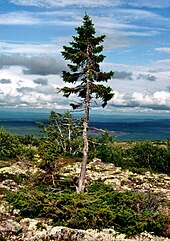This is an essay on notability. It contains the advice or opinions of one or more Wikipedia contributors. This page is not an encyclopedia article, nor is it one of Wikipedia's policies or guidelines, as it has not been thoroughly vetted by the community. Some essays represent widespread norms; others only represent minority viewpoints. |
| This page in a nutshell: When notability is legitimately invoked as an issue in a deletion nomination, the problem usually cannot be solved by more editing. |


When articles are listed for deletion on the grounds of the topic's notability, the creators of such articles often ask how they could write better articles about that topic. But they are, in fact, asking the wrong question. There are many notability guidelines for different types of articles, but when a notability issue is invoked, no matter what the topic is, it always boils down to this question: should we even have an article about that topic?
This means that unless information is added to an article to show that its topic meets the relevant notability guideline, or unless the notability issue was invoked in error, there is nothing that can be done to save the article. Not a better writing style. Not a more neutral wording. Not surrendering the redaction to another person to circumvent conflict of interest guidelines. Not the removal of material potentially regarded as promotional. Not a more explicit referencing from primary sources, press releases, or interviews. Not even a promise that, soon, the subject will meet the notability guidelines. Nothing. None of these things address the problem. The problem is not with the article itself: the problem is what the article is about.
Editors who protest against deletion nominations of articles they create are often closely related to the subject. Our conflict of interest guidelines do not prevent anyone from creating or editing articles about themselves, but the very act of creating an article often arises from such a relationship, and the creator often overestimates the notability of the subject. However, people who create articles about themselves or projects they are involved in can do something when their articles are deleted on notability grounds. But it can only be done off-wiki. They can get others to notice them or their projects first.
For example: If an article had been posted in 2001 (Wikipedia's first year) about the American recording artist and record producer Akon, it would probably have been deleted for lack of notability, with good reason. Even in 2004, when the biographic article about Akon was first posted, another editor might have argued that it was too soon for an encyclopedic mention of this new hip-hop sensation (and it probably was). But little by little, reporters and authors took notice, and voilà! With new reliable sources to back up the information in the article, he became notable in Wikipedia's mind. At that point with the supporting newspaper and magazine articles, no editor could make a credible claim that Akon was not notable.
In fact, if the current notability guidelines for websites had existed in 2001 (Wikipedia's first year), this encyclopedia would not have been able to maintain an article about itself. There was nothing about the site to document or write down as it was largely unknown at the time. But Wikipedia has grown into notability - appearing in the news and featuring in academic studies – and nowadays, it would be unthinkable for Wikipedia to not have such an article.
Wikipedia has more than 6.8 million articles now. Many of those do not do justice to the importance of their subjects (we believe the technical term would be "crappy"), but at least they do establish that the subject has been noticed by third parties before the Wikipedia article was started. Bad writing is not an argument for deletion except in extreme cases, but an otherwise brilliantly written article may be deleted without hesitation if its topic does not meet the relevant notability guideline.[1]
- ^ Articles for deletion discussion closed as a redirect for featured article Lewis (baseball)
© MMXXIII Rich X Search. We shall prevail. All rights reserved. Rich X Search
